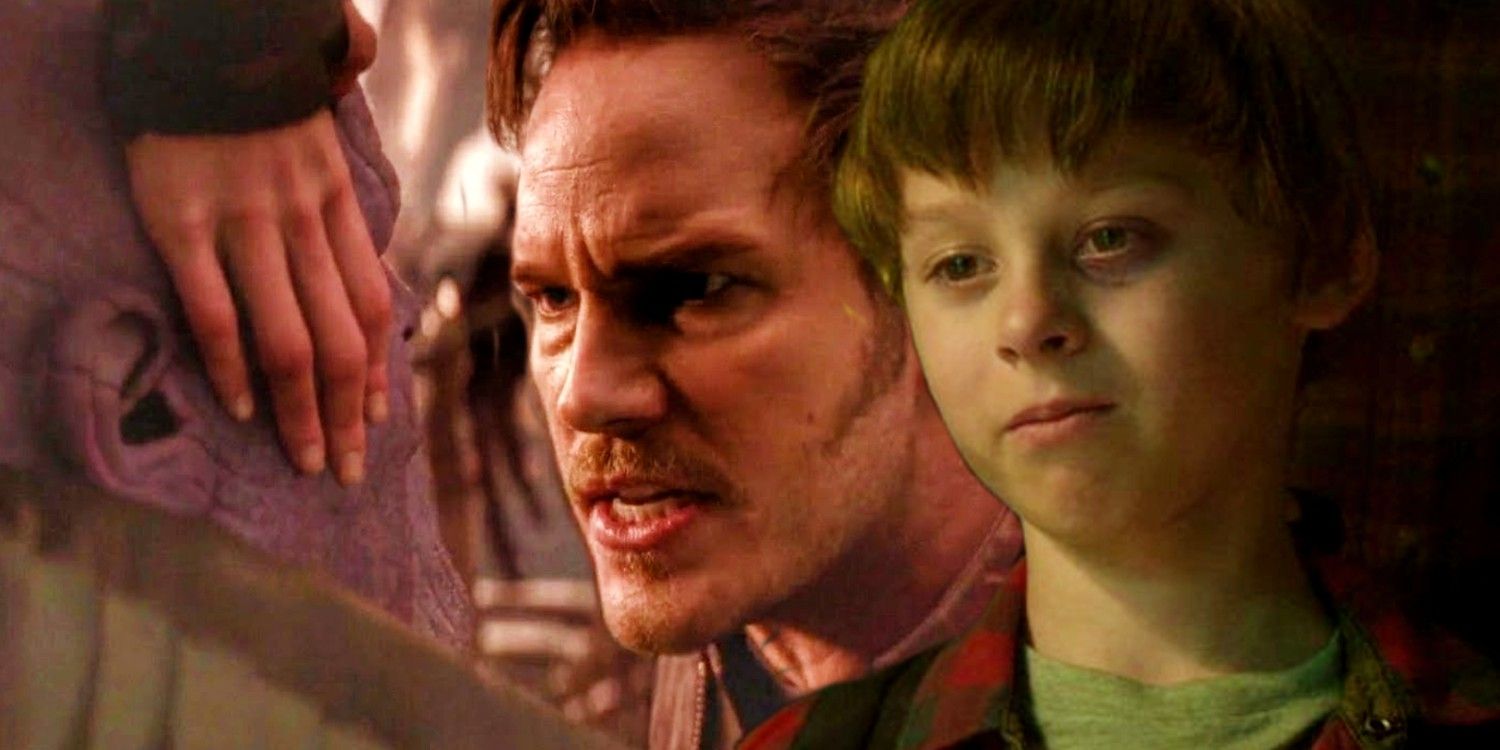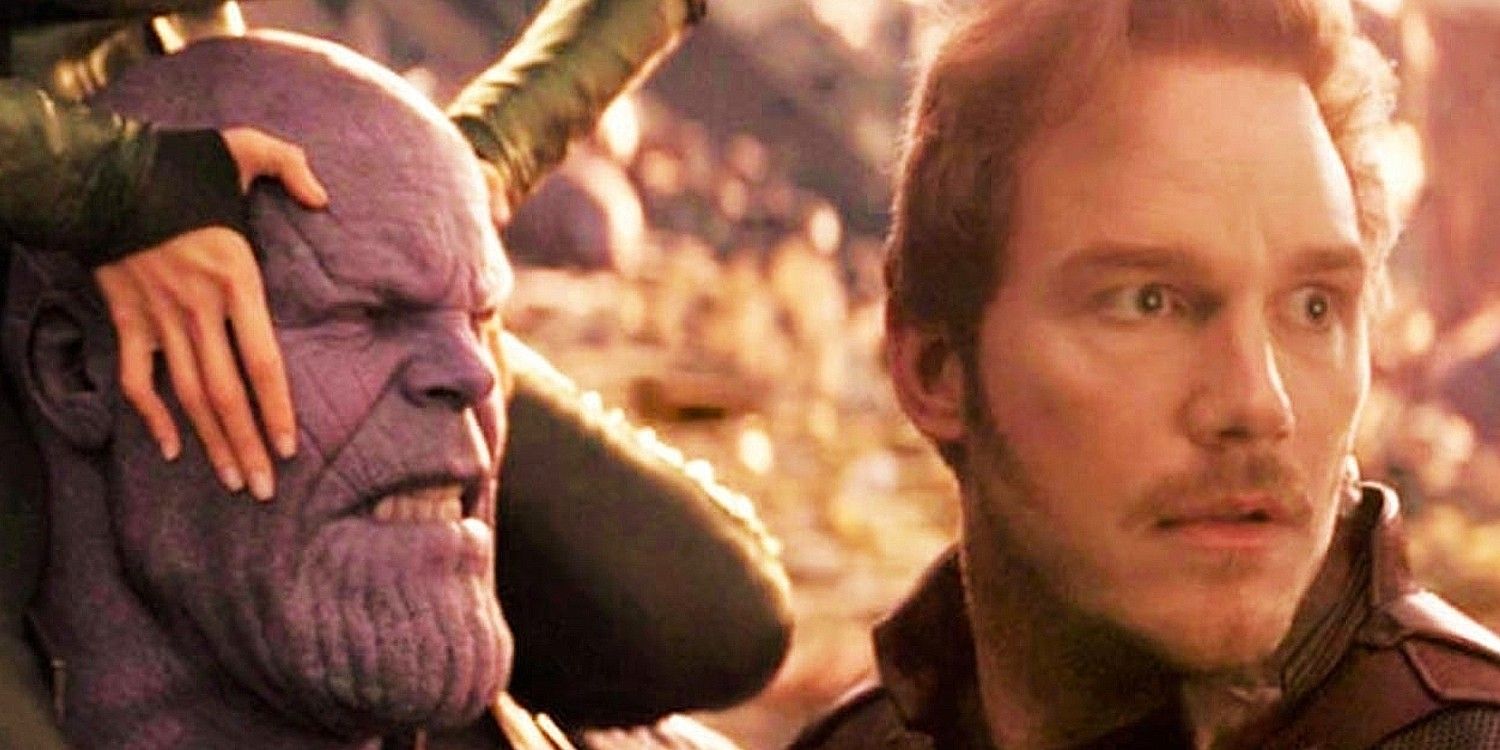After Thanos' snap at the end of Avengers: Infinity War, Star-Lord was heavily criticized for his part in allowing the villain to escape Titan with the Infinity Gauntlet, but it was a long-hinted, in-character moment. In fact, Peter Quill's emotional response to the death of Gamora was set up in his very first MCU scene and his very first bit of dialog.
Star-Lord's reaction to Thanos admitting he'd killed his "favorite daughter" is almost as legendary a moment in the MCU's Infinity Saga pay-off as Thor's missed Stormbreaker shot and Thanos' snap. Because he couldn't control his emotions - which he'd actually shown before in Guardians of the Galaxy Vol 2 in response to Ego's matricidal confession - Quill unwittingly allowed Thanos to escape the collected attentions of the Avengers and Guardians team-up. MCU fans, naturally, responded by blaming him for the snap entirely, ignoring Doctor Strange's intentional passivity in the moment because it needed to happen. Considering Quill's reaction showed his human side, it was hardly an illogical reaction.
And beyond Peter's humanity, the moment spoke to who he had always been as a person, well before his association with the Guardians turned him into a true hero from an intergalactic rake. It was setup when Peter came to the hospital to see his mother before her death, with Meredith Quill noticing that her son had been in a fight and his answer marking him out as an honorable character whose later stance against Thanos as a bully made all the more sense because of it. Quill had stood up to needless bullies as a child and that inherently good fabric - which came not from his father, but his mother - carried through years as a Ravager to partly inform why he lost control of his emotions with Thanos all of those years later.
As Meredith lays dying on her hospital death, she sees Peter's bruised face and asks why he's been "fighting with the other boys again" and Peter's response confirms his ingrained moral system: "They killed a little frog that ain’t done nothing. Smushed it with a stick." Meredith wrongly attributes his sense of justice to Ego, Peter's father, but it comes from her humanity more than the Celestial's superpowers. That much becomes clear in Guardians of the Galaxy Vol 2, of course, when Ego's true plan and murder of Meredith become clear, but the fact that it endures in Peter even beyond Ego's death proves the source doubly.
Captain America tends to get the label as the MCU hero who can't abide bullies, but Star-Lord's story is arguably even more poignant in that respect. Meredith's challenge to his black-eye confirms it's not an isolated incident, suggesting Peter was an isolated but honorable child and his entire upbringing was designed to strip him of that humanity. After all, while Yondu proved a good father (at least in his final moments), he seemed appalled by Peter's status as a Terran and taught him the Ravager creed, which encouraged behavior fitting a bully rather someone who stands up to them. Peter's arc, then, is all the more impressive, and while his Infinity War mistake is pegged as a hysterical lack of clarity, it's unlikely a clearer head or less of a romantic link to Gamora would have determined a different reaction. Thanos was a bully, Gamora was the innocent "smushed with a stick" and from that first moment, Star-Lord confirmed he'd never be one to stand back and let it happen without retrospective justice. No matter what the odds against him or the cost to himself.








